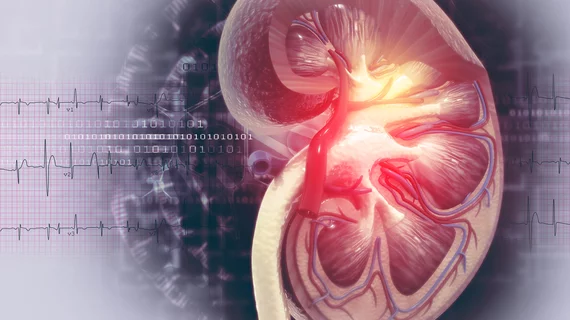Interventional radiologists leading fewer kidney stone removal procedures
Interventional radiology departments are performing fewer kidney stone removal procedures than in the past, according to findings published in the Journal of Endourology.
IR specialists are ceding market share to urologists, who are increasingly executing their own initial renal access exams for percutaneous nephrolithotomy. In fact, the proportion of urologist-led procedures jumped from 12.8% in 2007 to 32.3% in 2017, Renal & Urology News reported Wednesday.
These minimally invasive surgeries completed by radiologists also required more (30.8%) patients to stay in the hospital for two days or longer compared to procedures undertaken by urologists (18.6%). IR experts were also associated with higher 90-day readmission rates and 90-day blood transfusion statistics.
Overall, rads still completed 40% of total procedures in 2017 compared to urologists’ 32%. But the gap is narrowing, to the favor of some urologists.
“We were encouraged to see that the uptake of urologists obtaining their own access has increased over the last decade and that their outcomes on selected patients were comparable to our IR colleagues,” Ian S. Metzler, MD, of the University of Washington School of Medicine in Seattle told Renal & Urology News
Read more from the news outlet below.

